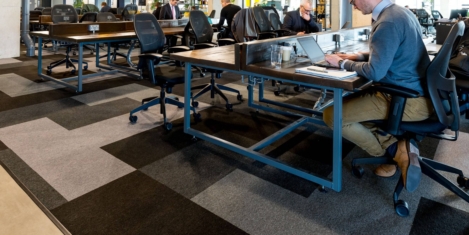July 11, 2018
Katrina Kostic Samen confirmed as President of the British Council for Offices
 The British Council for Offices (BCO) today welcomes Katrina Kostic Samen as its new President. Katrina Kostic Samen, Founder and Managing Partner at KKS Strategy, formally takes over the position from Ken Shuttleworth, Founding Partner of Make Architects, at the BCO’s Annual General Meeting in London today, Wednesday 11th July. As Chair of the BCO Annual Conference held earlier this year in Berlin, Katrina set out the vision for her Presidential year, challenging delegates to look at the workplace from multiple occupier perspectives, and to ensure that they are designing and delivering offices which are inclusive and provide for a diverse workforce.
The British Council for Offices (BCO) today welcomes Katrina Kostic Samen as its new President. Katrina Kostic Samen, Founder and Managing Partner at KKS Strategy, formally takes over the position from Ken Shuttleworth, Founding Partner of Make Architects, at the BCO’s Annual General Meeting in London today, Wednesday 11th July. As Chair of the BCO Annual Conference held earlier this year in Berlin, Katrina set out the vision for her Presidential year, challenging delegates to look at the workplace from multiple occupier perspectives, and to ensure that they are designing and delivering offices which are inclusive and provide for a diverse workforce.























 The digital era, ageing populations, skills shortages, and unpredictable political and economic contexts are persuading multinationals to focus more on mobile talent, new ways of working and assessing the cost of expatriate packages for international employees that are critical to the future of work. This is according to Mercer’s 24th annual Cost of Living Survey which reveals that factors such as instability of housing markets and fluctuating inflation, currencies and prices for goods and services, are impacting the cost of doing business in various cities around the world. UK cities have significantly risen in the ranking this year.
The digital era, ageing populations, skills shortages, and unpredictable political and economic contexts are persuading multinationals to focus more on mobile talent, new ways of working and assessing the cost of expatriate packages for international employees that are critical to the future of work. This is according to Mercer’s 24th annual Cost of Living Survey which reveals that factors such as instability of housing markets and fluctuating inflation, currencies and prices for goods and services, are impacting the cost of doing business in various cities around the world. UK cities have significantly risen in the ranking this year. 










July 11, 2018
Challenging some of the most commonly held misconceptions about coworking
by John Williams • Comment, Coworking
(more…)